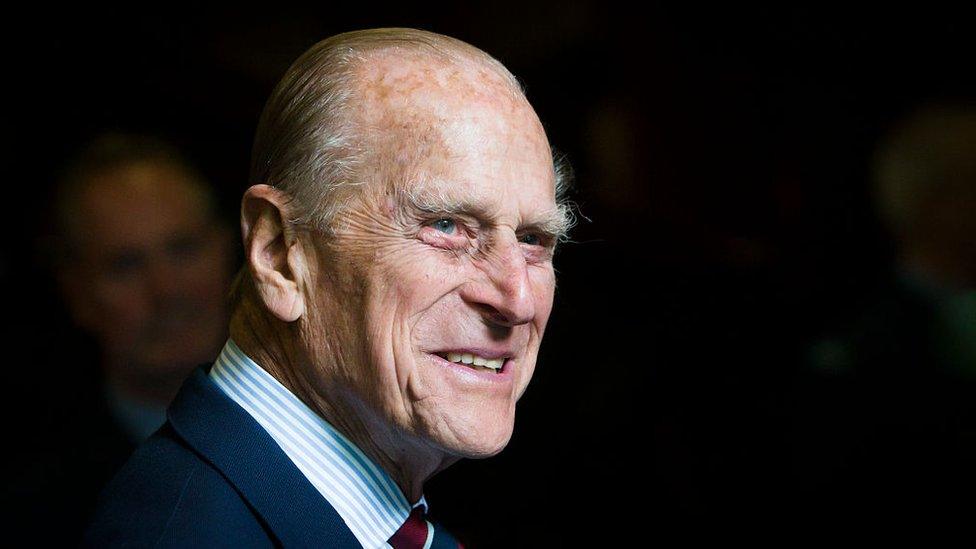Philip's will: Legal challenge on secrecy rejected
- Published

Judges backed how Prince Philip's will was kept from the "public gaze"
A legal challenge calling for greater media scrutiny of the decision to keep Prince Philip's will private has been rejected by the Court of Appeal.
The Guardian newspaper was contesting what it claimed as a lack of external scrutiny of the decision last year to seal the will for 90 years.
But judges rejected the claim, saying there were "exceptional" circumstances for the hearing to be held in private.
Sealing royal wills has been a convention for over a century.
But the Guardian had challenged how the court hearing in July 2021, which agreed to seal Prince Philip's will, had taken place without any media representatives present to hear the arguments.
The newspaper group had said this was a "serious interference with open justice".
But the Court of Appeal turned down the legal challenge and backed the decision to keep the hearing private.
The judges ruled there was no requirement to notify the media of the hearing and if they had notified the press they would have risked a "media storm".
"These circumstances are, as we have said, exceptional," said the ruling from Sir Geoffrey Vos and Dame Victoria Sharp, sitting with Lady Justice King.
"We are not sure that there is a specific public interest in knowing how the assets of the Royal Family are distributed."
The judges said there was a legitimate public debate about transparency, but there were rules which allowed wills in some cases to be "concealed from the public gaze".
It has become a convention that after the death of a senior member of the Royal Family an application is made to the president of the Family Division of the High Court to request the sealing of a will, which means it will not be open to public inspection.
After the death last April of the Queen's husband Prince Philip, such an application was made to the current president of the family division, Sir Andrew McFarlane.
The hearing, held privately in July and with its decision made public in September, had agreed to the sealing of the will to protect the "truly private aspects of the lives" of senior members of the Royal Family.
But the lack of media scrutiny or representation at the hearing prompted the Guardian to launch the legal challenge, calling the secrecy "disproportionate and unjustified".
There are more than 30 sealed royal wills held by the court, a practice that began with Prince Francis of Teck, the younger brother of Queen Mary, who died in 1910.
Related topics
- Published29 March 2022
- Published16 September 2021